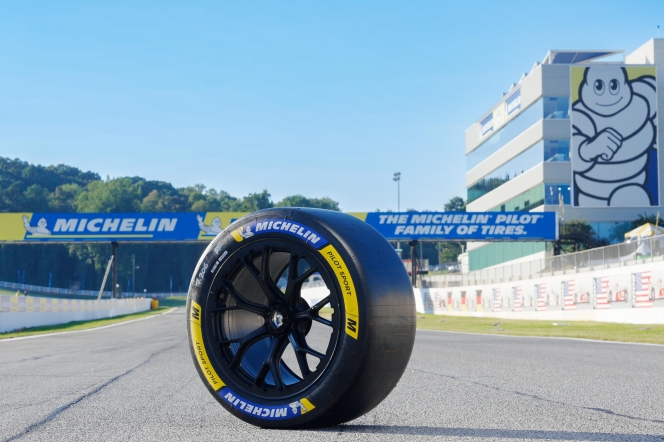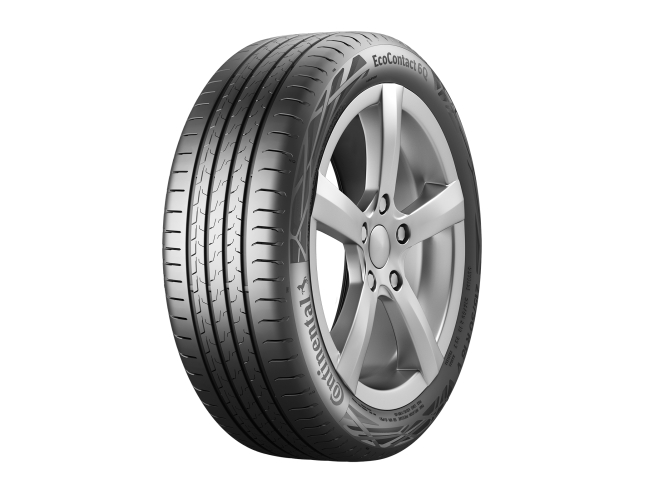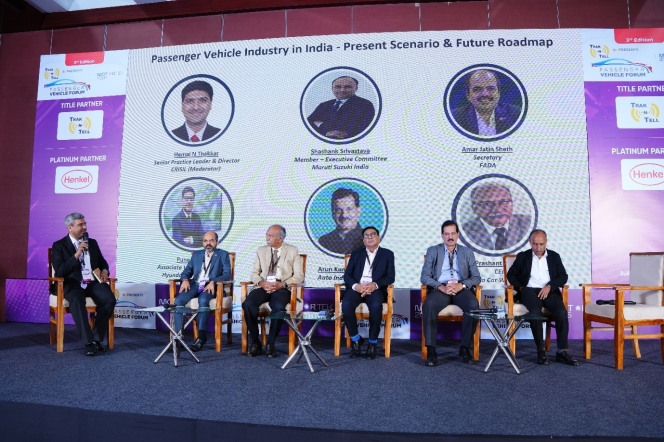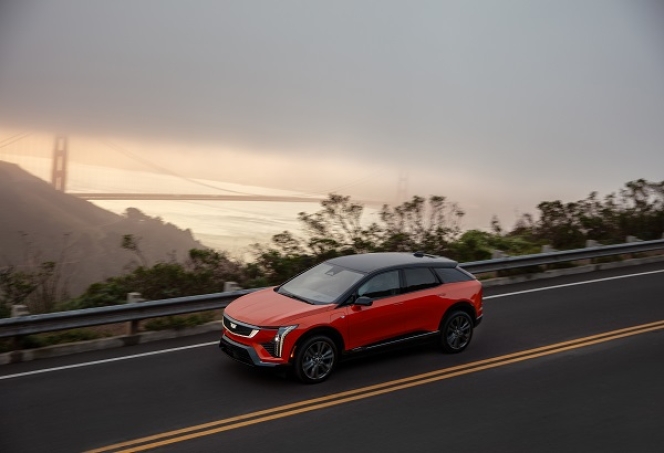
By Lennard Kwek
Over the last century, the world population has more than quadrupled. [1] Most of this growth is centred around the Asia-Pacific region, which is estimated to drive 40 per cent of the world’s consumption of goods and services by 2040. [2] In the last 30 years alone, countries such as China and Vietnam have experienced rapid urbanisation, fuelling economic growth and opening doors to infrastructure and public services to address the needs of the ever-rising middle-class population.
As people move up the economic ladder, their desire to lead a more comfortable life has a significant impact on many industries, including the automotive sector. The region’s economic potential and growing appetite for luxury and environmentally friendly products have led to innovations in the areas of Connected, Autonomous, Shared and Electric (CASE).
Vehicles, which play a huge role in the mobility of people and goods in this part of the world. And as critical components of automobiles, the tyre industry must keep pace with the changes brought about by CASE. The future of tyre will need to bring continued reliability, safety, and enhanced performance yet have the ability to integrate emerging technologies such as sensors, smart diagnostics and advanced safety systems. Such changes are also driving tire companies to innovate and develop diversified products and solutions as we move towards the concept of Mobilityas-a-Service (MaaS).
EV tyres
For instance, electric vehicles tend to be heavier due to the extra weight of the battery pack. Tyres for electric cars thus need to be structurally reinforced to withstand this increased load while maintaining low rolling resistance to maximise fuel efficiency. Conscious of consumer’s changing preferences and the associated environmental benefits of electric vehicles, Bridgestone specially designed custom-built tyres i.e. the ECOPIA ologic series for the BMW i3 electric vehicles. The tyres feature narrow tyre width to realise low rolling resistance and to reduce aero-dynamic resistance which are important factors in the improvement of a vehicle’s fuel efficiency and the reduction of carbon emissions.
Another trend in the automotive industry that has influenced the design of tyre is the rise of “shared mobility” services, such as ride-sharing. In the last few years, we have witnessed the massive popularity of ride-sharing platforms, and this growth is only projected to increase. A recent report by Bizwit Research estimates that the ride-sharing industry will grow by more than 20% between the years 2019 to 2025 [3].

Run-Flat Technology
On this front, Bridgestone’s tyres are engineered to offer enhanced performance and durability as the road-life of the tyres need to withstand the high-frequency usage demand of these vehicles. Solutions such as the recently launched DriveGuard RunFlat Technology (RFT) enable drivers to remain in control and continue driving up to a maximum distance of 80 kilometres at a maximum speed of 80 kilometres per hour after a puncture or complete loss of pressure. In addition to this, Bridgestone’s automatic sealant technology called B-Seal also guarantees air retention when nails, stones or other objects are embedded at up to 5mm in diameter in the tyre tread. These tyre solutions focus on extending tyre endurance and mobility - ideal for vehicles used very frequently in the ride sharing scenario. The rise of IoT and AI technologies is also powering the evolution of connected and autonomous selfdriving vehicles. Selfdriving opens up a world of possibilities - from increased personal safety to time efficiency and mobility for non drivers. In Asia, China seems to be taking the lead in readying self-driving vehicles for production, expecting fully autonomous vehicles to account for 10 per cent of car sales by 2030.[4] This accelerating transformation towards autonomous operations has a significant impact on the tyre industry. Tyre manufacturers will need to work towards creating tyres that can communicate with these autonomous vehicles, involving the integration of advanced sensor technologies, smart diagnostics and data analytics.
Having identified these needs at an early stage, Bridgestone is transforming its business operations to focus on solutions and integrating these technologies to meet the needs and expectations of the next generation of drivers. At its foundation is the newly introduced global mobility solutions strategy called Bridgestone Tires & Diversified Products as a Solution (Bridgestone T&DPaaS). The strategy is a combination of products, services such as Bridgestone’s Global Service Network and digital technologies.
_page-0001.jpg)
Smart Strain Sensor
Under the digital techniques branch, Bridgestone has developed a new type of tyre sensor, called the Smart Strain Sensor. A first-of-its-kind, the Smart Strain Sensor technology incorporates Internet of Things (IoT) technologies to help measure the strain that occurs when a tire makes contact with the road while in motion. Furthermore, unlike accelerometer sensors, the Smart Strain Sensor can record data even at low speeds, which makes it an important differentiator for autonomous vehicles which are expected to operate at lower speeds for enhanced safety. Last year, Bridgestone also acquired TomTom Telematics, now renamed as Webfleet Solutions, which offers
data-based solutions that make fleet operations more effective and efficient. Through this, Bridgestone gains valuable insights into vehicle and tire operating conditions from a user base of 860,000 vehicles communicating 200 million data points per day, thus accelerating its tire solutions offerings and paving the road towards autonomous driving. As the automotive industry continues to transform with the ongoing implementation of CASE, it is evident that tires will continue to play a key role in this revolution. However, in order to overcome the challenges and benefit from the opportunities arising from these trends, the tire industry will need to “reinvent the wheel” to stay on track and meet the evolving needs of the wider automotive industry.
REF: [1] https://hbr.org/2016/04/globaldemand-for-food-is-rising-can-we-meetit
[2] https://www.mckinsey.com/featuredinsights/asia-pacific/asias-future-is-now
[3] https://www.reuters.com/ brandfeatures/venture-capital/ article?id=83120
[4] https://publicaffairsasia.com/drivinggrowth-the-mechanics-of-auto
Lennard Kwek is Head of Marketing at Bridgestone China & Asia Pacific.

French tyre maker Michelin has extended its partnership with the International Motor Sports Association for several years, maintaining its position as exclusive tyre supplier for IMSA’s three main racing championships in North America.
The deal covers the IMSA WeatherTech SportsCar Championship, IMSA Michelin Pilot Challenge and IMSA VP Racing Sportscar Challenge, the companies said, without disclosing financial terms or the specific duration of the agreement.
Michelin, which has supplied tyres to the IMSA series for years, said endurance racing serves as a critical testing ground for advanced materials and technologies that eventually transfer to consumer products.
“Michelin has been innovating for more than 130 years, and competition has always been at the heart of that journey,” said Alexis Garcin, executive vice president of Michelin. “From the first removable bicycle tyre to the Pilot Sport Endurance range, many of our breakthroughs have consistently come from the racetrack. IMSA gives us a competitive ecosystem to validate new technologies under real pressure, and that’s exactly where Michelin thrives.”
The Clermont-Ferrand-based company said it is applying advanced tread compounds, simulation tools and data analytics developed through racing to its broader product portfolio, linking track performance with commercial tyre development.
John Doonan, IMSA president, said: “Michelin has been a cornerstone of IMSA’s success. Their technical expertise and commitment to innovation have elevated the level of competition across our series. We’re proud to continue this journey together.”
The partnership extension comes as IMSA pursues technological advances, including hybrid powertrains and electrification in sports car racing. Michelin said it would remain a technical partner in developing solutions for these evolving requirements.
Mercedes-Benz GLE And GLS To Run On Continental EcoContact 6 Q Tyres
- By TT News
- October 04, 2025

Mercedes-Benz has once again selected Continental's advanced EcoContact 6 Q tyre as original equipment for its GLE and GLS luxury SUV models, underscoring a continued partnership built on technical expertise.
This specific tyre was meticulously engineered to deliver a superior and refined driving experience, prioritising both exceptional energy efficiency and remarkably quiet operation. A key to its performance is a specially formulated rubber compound that minimises energy absorption, thereby significantly reducing rolling resistance. This design feature directly contributes to improved fuel efficiency and is suitable for a diverse range of vehicle models, irrespective of their specific drive type. Continental's engineers also dedicated considerable effort to acoustics, optimising the tyre's tread pattern to actively minimise rolling noise for a more comfortable cabin environment.
Beyond these core attributes, the EcoContact 6 Q is built for longevity and safety, offering high mileage alongside reliable and consistent grip on both wet and dry road surfaces. It also provides drivers with confidence through its short braking distances and excellent cornering stability, which remains assured even when traveling at higher speeds. This combination of features makes it a comprehensive and high-performing original equipment choice for Mercedes-Benz's prestigious SUVs.
This tyre line is available in the following sizes:
EcoContact 6 Q MO, 275/50 R 20 113W XL
EcoContact 6 Q MO, 275/45 R21 107Y
EcoContact 6 Q MO, 315/40 R21 111Y
EcoContact 6 Q MO, 285/40 R22 106Y
EcoContact 6 Q MO, 325/35 R22 110Y
EcoContact 6 Q MO, 285/45 R22 114Y
EcoContact 6 Q MO, 325/40 R22 114Y
EcoContact 6 Q MO, 285/40 R23 107Y
EcoContact 6 Q MO, 325/35 R23 111Y
India’s Auto Sector Charts Multi-Fuel Roadmap As Safety, Electrification Dominate Industry Agenda
- By TT News
- September 18, 2025

India’s passenger vehicle industry must embrace a technology-neutral fuel strategy whilst accelerating safety standards and building resilient supply chains, senior executives and policymakers concluded at a major industry gathering in Pune 2nd September 2025, as the country grapples with balancing affordability against rapid technological transformation.
The third edition of the Passenger Vehicle Forum, held at Hyatt Regency in Viman Nagar, brought together more than 300 senior industry leaders, policymakers, original equipment manufacturers, technology innovators and supply chain experts for discussions spanning electrification, software-defined vehicles, artificial intelligence integration and evolving consumer behaviour in the world’s third-largest automotive market.
Fuel Transition Demands Flexibility
Industry leaders stressed that India’s path to cleaner mobility cannot rely solely on battery electric vehicles, calling instead for a diversified approach incorporating hybrids, compressed natural gas, biofuels and hydrogen technologies.
“India’s path to cleaner mobility must be technology-neutral—balancing EVs with hybrids, CNG, biofuels, and hydrogen—while fostering indigenous R&D, supportive policies, and collaborative efforts to ensure energy security and sustainability,” panellists from NIBE, the International Council on Clean Transportation, IIT Kanpur, Hydrovert Energy and the Automotive Research Association of India said during discussions on the future fuel mix.
The forum opened with a research presentation by Hemal N Thakkar, senior practice leader and director at Crisil, outlining the passenger vehicle industry's present scenario and future roadmap. Thakkar subsequently moderated a panel featuring Shashank Srivastava of Maruti Suzuki India, Amar Jatin Sheth from the Federation of Automobile Dealers Associations, automotive industry veteran Arun Kumar Malhotra, Puneet Anand of Hyundai Motor India, and Prashant Shitoot from Auto Yoga Car Wellness Centre.
“Sustainability, safety, technology adoption and affordability were identified as the four pillars shaping India’s automotive future, with collaboration across OEMs, government, and stakeholders seen as critical for long-term growth,” the opening panel concluded, whilst highlighting the dramatic shift in consumer preferences from hatchbacks to sport utility vehicles in the post-COVID period.
Panellists emphasised persistent affordability challenges in entry-level car segments and called for regulatory clarity on goods and services tax structures, ethanol blending mandates and corporate average fuel economy norms. The strengthening of aftermarket services and upgrading of local service providers were identified as critical priorities, alongside exploring new revenue models through telematics and subscription services.
Supply Chain Vulnerabilities Expose Import Dependence
A panel featuring senior executives from Honda Cars India, Omega Seiki Mobility, Tata AutoComp, BMW and Nomura Research Institute examined critical vulnerabilities in India’s electric vehicle supply chain, with particular emphasis on the country’s heavy reliance on imported battery cells.
Abhishek Sahi of Honda Cars India, Preetesh Singh from Nomura Research Institute, Dr Ajit Kumar Jindal of Tata AutoComp and Dr Arvind Gupta from BMW underscored the country’s dependence on imports—especially battery cells—while emphasising the strategic imperatives for building a sustainable EV ecosystem.
The executives highlighted the importance of accelerated localisation, stronger supplier partnerships and robust risk management frameworks to navigate global disruptions and build a resilient domestic manufacturing base.
Experts from IIT Kanpur, Altigreen, ARAI, Henkel and Stellantis discussed the transition from internal combustion engines to electric vehicles during a separate electrification panel, addressing lightweighting strategies, advanced materials and the critical role of startups and research centres. Panellists identified limited domestic battery production, raw material dependence and talent development as significant hurdles, whilst stressing the need for a collaborative ecosystem to meet global standards and enhance India’s competitiveness against markets such as China.
Safety Emerges As Consumer Priority
Vehicle safety is rapidly shifting from a regulatory compliance issue to a consumer-driven purchasing criterion, according to experts from ARAI, the Institute of Driving Training and Research, ZF and Bharat NCAP, who participated in a panel moderated by Neelam Pandey Pathak of the Women in Mobility Alliance and Rozgar Dhaba.
“Safety is shifting from a regulatory mandate to a consumer-driven priority, with evolving standards, ADAS integration, and stronger OEM-supplier collaboration set to align India with global benchmarks by 2027-28,” the panellists said, noting that India accounts for 11 percent of global road accidents.
The discussion highlighted advances in crash testing methodologies, driver training programmes, localised safety technologies and the growing influence of Bharat NCAP ratings on consumer purchasing decisions. Integration of advanced driver assistance systems and enhanced collaboration between manufacturers and suppliers was identified as an essential step towards meeting international safety benchmarks.
Software, AI Reshape Automotive Landscape
The forum dedicated substantial attention to the transformation of vehicles into software-defined platforms, with experts from EY-Parthenon, Elektrobit, ARAI, Vayve Mobility and HackersEra exploring the shift from hardware-centric to software-driven architectures.
Nandakumar Kollu of Elektrobit India, Nilesh Bajaj from Vayve Mobility and Vikash Chaudhary of HackersEra Automotive Cybersecurity discussed the critical importance of cybersecurity, over-the-air update capabilities, evolving regulatory frameworks and new monetisation models for software features.
Panellists highlighted India’s opportunity to lead in SDV development by leveraging its strong IT talent, growing EV ecosystem, and increased R&D investments, while stressing the need for collaboration across OEMs, suppliers, regulators, and academia.
A separate panel examined artificial intelligence applications across automotive design, customer engagement, supply chain management and aftersales service. Experts from Xane AI, Skoda Auto Volkswagen, Kinetic Green and DaveAI addressed challenges around affordability, data privacy and scalability in emerging markets.
Panellists emphasised the need for responsible, empathetic AI solutions, stronger regulatory frameworks, and industry-academia collaboration to build talent and ensure localised, consumer-centric innovation.
Consumer Insights Reveal Market Evolution
A panel led by K Srikumar of ICRA, featuring executives from Mahindra & Mahindra, MG Motor, Chitra Cars, Honda and Trak N Tell, examined the evolving Indian passenger car market, identifying significant shifts in consumer mindset, dealership dynamics and financing trends.
Ravinder Singh Rawal from Mahindra & Mahindra Automotive, Saurabh Tripathi of Morris Garages India and industry veteran Minesh Jha discussed rising demand for safety and comfort features, the growing importance of digital research channels alongside the continued relevance of physical dealerships, and the rapid expansion of the used car market.
Panellists agreed that the future will be driven by safety, cost efficiency, electrification, and personalised customer experiences, whilst noting persistent challenges in electric vehicle adoption related to financing availability and charging infrastructure gaps.
A panel moderated by Kaushik Madhavan explored future in-vehicle infotainment and telematics systems, featuring insights from Pranshu Gupta, founder and chief executive of Trak N Tell, alongside experts from Stellantis India and the National Institute of Design. Priyanka Shukla of Stellantis and Pratheek P Ashok from the National Institute of Design joined discussions on how startups can build credibility whilst manufacturers drive differentiation through user experience and connected features.
Panellists also highlighted challenges around affordability, ADAS adoption, and consumer awareness, stressing the need for innovation, data-driven solutions, and industry-academia collaboration to shape India’s next phase of mobility.
Technical presentations during the forum included an introduction to telematics solutions by Gupta and a spotlight on noise, vibration and harshness challenges in electric mobility repair by Rohit Ekhe and Alistair Saldanha from Henkel’s ACM India division.
Other notable speakers included Anil Srivastava from IIT Kanpur, Avik Chatterjee from ARAI, and Achyut Deshmukh from Stellantis. They contributed diverse expertise across the forum’s two parallel tracks, which focused on strategy, growth, and market dynamics, as well as technology, innovation, and future trends.
The forum’s organisers said the event reinforced its position as India’s premier platform dedicated to shaping the future of the passenger vehicle ecosystem, with the next edition scheduled for 2026.
- Continental
- Continental Tyres
- Continental CrossContact RX
- General Motors
- Cadillac OPTIQ
- Chevrolet Equinox EV
- E-SUV
- Electric SUV
Cadillac OPTIQ And Chevrolet Equinox EV E-SUVs To Run On Continental CrossContact RX Tyres
- By TT News
- September 16, 2025

Continental has been selected by General Motors as an original equipment supplier for its new Cadillac OPTIQ and Chevrolet Equinox EV models. These electric SUVs will be factory-fitted with Continental's CrossContact RX all-weather touring tyres, specifically in 20- and 21-inch sizes.
Engineered for a blend of safety and comfort, the CrossContact RX tyres are designed to perform reliably in diverse conditions, including light off-road terrain and moderate snowfall. Their development focused on delivering strong braking performance and dynamic handling on dry, wet and wintry roads. An optimised tread pattern and contour contribute to lower rolling resistance and enhanced traction across various weather scenarios.
Furthermore, a uniform sipe arrangement within the tread reduces road noise for a quieter ride. A key feature is the inclusion of ContiSeal technology, which automatically seals punctures up to 6 mm in diameter, allowing drivers to continue their journey without immediate interruption. This technology provides an added layer of convenience and safety for electric vehicle owners.
The tyre range has been approved in the following sizes:
CrossContact RX, 275/40 R21 107H XL FR ContiSeal
CrossContact RX, 245/50 R20 105H XL FR ContiSeal






Comments (0)
ADD COMMENT